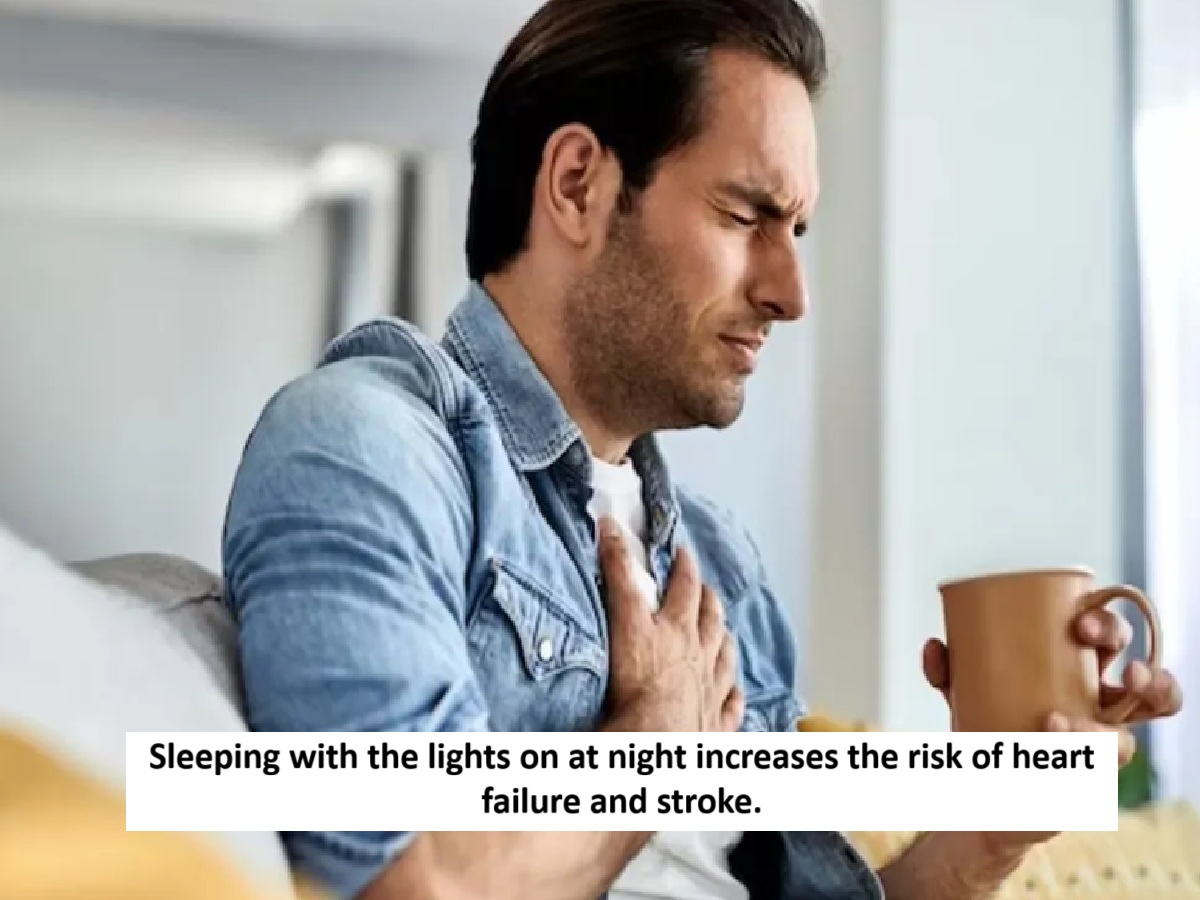
News Topical, Digital Desk : If you sleep with the lights on at night, be careful. According to a study, sleeping with the lights on at night increases the risk of heart-related diseases manifold. This includes heart failure, stroke, and increased heartbeat.
According to a new study, exposure to bright light at night, including scrolling on a phone, may be linked to a 56 percent higher risk of heart failure. It may be a significant risk factor for heart disease in young people aged 40 and over. Researchers from Flinders University in Australia analyzed data on more than 13 million hours of light exposure collected through sensors worn by nearly 89,000 people in the UK. Participants were followed up for more than nine years.
Heart disease on the rise among young people
Nighttime light exposure was also linked to a 47 percent higher risk of heart attack, 32 percent of coronary artery disease, and 28 percent of heart stroke. Nighttime light exposure was a significant risk factor for heart disease in young people over the age of 40, the authors wrote in the study, published in the Journal of the American Medical Association (JAMA) Network Open.
"This is the first large study to show that exposure to light at night is a strong and independent risk factor for heart disease," said lead author Daniel Windred, a research associate at Flinders University. "When you're exposed to bright light at night, when it's normally dark, it disrupts your body's internal circadian clock, putting you at greater risk of dangerous heart problems," Windred said.
Senior co-author Shaun Kane, professor in the College of Medicine and Public Health at Flinders University, said the study also found that women and young people were particularly sensitive to the effects of light exposure at night. Women may be more sensitive to the effects of light disrupting their body clock, which supports earlier research findings. This suggests a need for caution.
Take these measures to avoid danger
Kane said that women exposed to high levels of light at night actually had the same risk of heart failure as men, which is unusual because women typically have some natural protection against heart disease. The researchers suggested that avoiding light at night may be a useful strategy for reducing the risk of heart disease. They said that using blackout curtains, dimming lights and avoiding screens before bed may help reduce the health risks associated with nighttime light exposure.
--Advertisement--

 Share
Share



